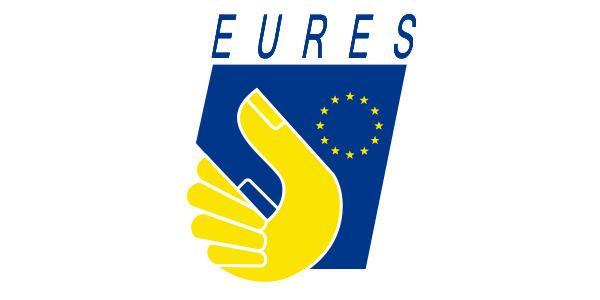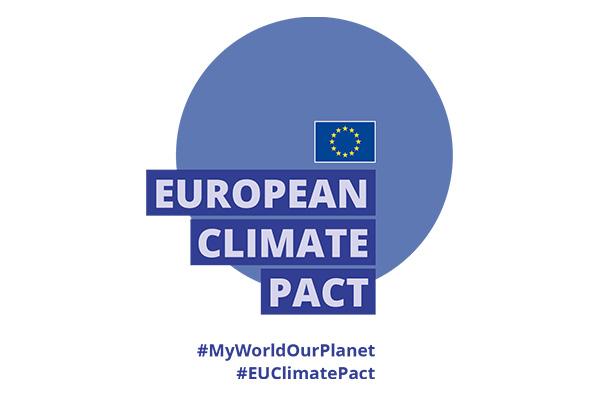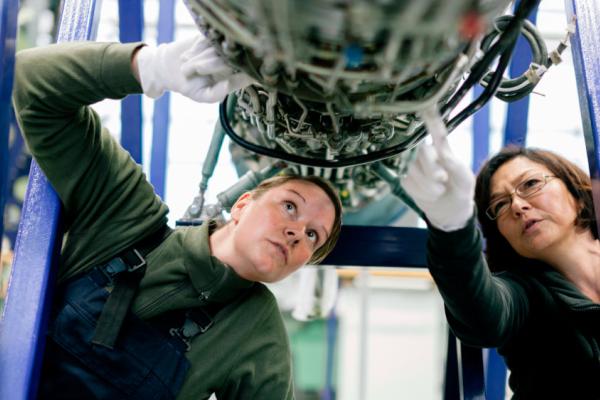Skills for jobs
Skills for Jobs: the first principle of the European Pillar of Social Rights states that everybody in the EU has the right to quality and inclusive education, training and lifelong learning. The updated Skills Agenda delivers on this principle by helping people to develop and widen their skills throughout their life.
The European Year of Skills has four objectives, which are the priorities for the Year. Throughout the Year, we aim to build on EU actions on skills that are already in place and promote a mindset of up- and reskilling throughout the Member States.
Here you can learn how our EU skills policies and programs already contribute to the objectives of the Year:
Individual Learning Accounts (ILAs)
The Council Recommendation on individual learning accounts outlines how Member States can combine financial and non-financial support in an effective way to empower all adults to develop their skills throughout working life. Individual learning accounts are digital wallets with training entitlements. They are addressing the following bottlenecks for people to embark on training: motivation, time and funding.
Centres of Vocational Excellence (CoVEs)
The EU-initiative of CoVEs funds through Erasmus+ transnational partnerships for excellence between a wide range of local partners based in the EU and beyond. CoVEs allows VET institutions to rapidly adapt skills provision to evolving economic and social needs, including the digital and green transitions. Projects focus on areas like AI, renewable energies, sustainable agriculture or social inclusion, contributing to regional, economic and social development, innovation, and smart specialisation strategies. Erasmus+ 2021-2027 will fund 100 projects for Centres of Vocational Excellence.
Pact for Skills
The European Commission has launched the Pact for Skills, a shared engagement model for skills development in Europe. Companies, workers, national, regional and local authorities, social partners, cross-industry and sectoral organisations, education and training providers, chambers of commerce and employment services all have a key role to play. To support a fair and resilient recovery and deliver on the ambitions of the green and digital transitions and of the EU Industrial and SME Strategies, the Commission invites public and private organisations to join forces and take concrete action to upskill and reskill people in Europe.
ALMA (Aim, Learn, Master, Achieve)
Europe needs to step up support to those who are struggling, and have fallen into the gaps – young people not in any kind of employment, education or training (NEETs).That's why the initiative called ALMAis being implemented within the European Social Fund Plus (ESF+).
Vocational Education and Training (VET)
Modern vocational education and training is agile, adapting swiftly to labour market needs and providing quality learning opportunities for all age groups. The Commission supports Member States’ efforts to modernise their VET systems. The Council Recommendation on Vocational Education and Training for sustainable competitiveness, social fairness and resilience defines key principles of innovative VET provision in this regard.
- Centres of Vocational Excellence (CoVEs)
The EU-initiative of CoVEs funds through Erasmus+ transnational partnerships for excellence between a wide range of local partners based in the EU and beyond. CoVEs allows VET institutions to rapidly adapt skills provision to evolving economic and social needs, including the digital and green transitions. Projects focus on areas like AI, renewable energies, sustainable agriculture or social inclusion, contributing to regional, economic and social development, innovation, and smart specialisation strategies. Erasmus+ 2021-2027 will fund 100 projects for Centres of Vocational Excellence.
European Alliance for Apprenticeships (EAfA)
The European Alliance for Apprenticeships (EAfA) unites governments and key stakeholders with the aim of strengthening the quality, supply and overall image of apprenticeships across Europe, while also promoting the mobility of apprentices. These aims are promoted through national commitments by countries and voluntary pledges from stakeholders, like VET providers, social partners, regional and local authorities, companies, and more.
Pact for Skills
The European Commission has launched the Pact for Skills, a shared engagement model for skills development in Europe. Companies, workers, national, regional and local authorities, social partners, cross-industry and sectoral organisations, education and training providers, chambers of commerce and employment services all have a key role to play. To support a fair and resilient recovery and deliver on the ambitions of the green and digital transitions and of the EU Industrial and SME Strategies, the Commission invites public and private organisations to join forces and take concrete action to upskill and reskill people in Europe.
Blueprint for sectoral cooperation on skills
Since its introduction in 2016, the Commission has selected 28 projects under the Erasmus+ programme that are implementing the Blueprint. They build on previous work by the European Commission and sectoral partners to address sector skills mismatches, in particular the European sector skills alliances.
Individual Learning Accounts (ILAs) & Micro-credentials
Council Recommendation on individual learning accounts outlines how Member States can combine financial and non-financial support in an effective way to empower all adults to develop their skills throughout working life. Individual learning accounts are digital wallets with training entitlements. They are addressing the following bottlenecks for people to embark on training: motivation, time and funding.
Micro-credentials certify the learning outcomes following a small learning experience (e.g. a short course or training). They offer a flexible, targeted way to help people develop the knowledge, skills and competences they need for their personal and professional development.
ALMA (Aim, Learn, Master, Achieve)
Europe needs to step up support to those who are struggling and have fallen into the gaps – young people not in any kind of employment, education or training (NEETs).That's why the initiative called ALMAis being implemented within the European Social Fund Plus (ESF+).
Upskilling Pathways
The Council Recommendation on Upskilling Pathways aims to help adults acquire a minimum level of literacy, numeracy and digital skills and/or acquire a broader set of skills by progressing towards an upper secondary qualification.
EU Talent Pool Pilot
Looking for work? Are you a person fleeing the war in Ukraine and are allowed to work in the EU under temporary protection? Through the EU Talent Pool Pilot, you can create your CV and show your skills to more than 5 000 carefully validated and registered employers and EURES Members and Partners.
EU Skills Profile Tool for Third Country Nationals
The EU Skills Profile Tool for Third Country Nationals supports early profiling of the skills of refugees, migrants and citizens of non-EU countries who are staying in the EU (third country nationals).
The European Entrepreneurship Competence Framework (EntreComp)
The European Commission has developed EntreComp: the European Entrepreneurship Competence Framework as a reference framework to explain what is meant by an entrepreneurial mindset. EntreComp offers a comprehensive description of the knowledge, skills and attitudes that people need to be entrepreneurial and create financial, cultural or social value for others. EntreComp is a common reference framework that identifies 15 competences in three key areas that describe what it means to be entrepreneurial.
European Skills/Competences, Qualifications and Occupations (ESCO)
ESCO is the European multilingual classification of skills, competences, qualifications and occupations. It works like a dictionary, describing, identifying and classifying professional occupations and skills relevant for the EU labour market and education and training area and systematically showing the relations between those occupations and skills. It is available in an online portal where its dataset of occupations and skills can be consulted and downloaded free of charge.
European Qualifications Framework (EQF)
The EQF is an 8-level, learning outcomes-based framework for all types of qualifications that serves as a translation tool between different national qualifications frameworks. This framework helps improve transparency, comparability and portability of people’s qualifications and makes it possible to compare qualifications from different countries and institutions.
Europass
Europass is the European tool to manage your skills and plan your learning and your career. As a framework of online tools and information it helps people to communicate their skills, qualifications and experiences to take the next step in their career. The Europass platform was relaunched on 1 July 2020 as one of the flagship actions of the Skills Agenda.
EPALE
EPALE is a European, multilingual, open membership community of adult learning professionals, including adult educators and trainers, guidance and support staff, researchers and academics, and policymakers. It enables members to connect with and learn from colleagues across Europe, through its blog posts, forums, the Partner Search tool, complemented with physical and online gatherings. and online gatherings. It is funded by the Erasmus+ programme. It is part of the European Union’s strategy to promote more and better learning opportunities for all adults.
EURES
Launched in 1994, EURES is a European cooperation network of employment services, designed to facilitate the free movement of workers. The network has always worked hard to ensure that European citizens can benefit from the same opportunities, despite language barriers, cultural differences, bureaucratic challenges, diverse employment laws and a lack of recognition of educational certificates across Europe.
EQAVET - European Quality Assurance in Vocational Education and Training
EQAVET is a European wide framework to support quality assurance in VET across Europe, which emerged from the 2009 Recommendation of the European Parliament and Council. It provides a framework of common principles, indicative descriptors and indicators that may help in assessing and improving the quality of VET systems and VET provision, like learning environments, different types of learning, VET awards and qualifications at all levels of the European Qualifications Framework.
Digital skills
Digital skills are essential for people to participate in society, work, and achieve social inclusion. They are also crucial for the EU’s economic growth and competitiveness. In addition, digital jobs offer more autonomy, skills development, job satisfaction, and usually come with better working conditions. Digital skills are a priority of the European Year of Skills Ambitious objectives for the EU have been set in the following strategic policy documents:
The initiative set the target of digital skills by 2030: 80% of people in the EU with basic digital skills. The Plan could make Europe more socially inclusive, cohesive, and financially strong.
The policy programme, with concrete targets and objectives for 2030, will guide Europe’s digital transformation: 20 million ICT Specialists employed with better gender equality and Basic Digital Skills for min 80% of the population.
Two Proposals for Council recommendations on digital education and skills
The proposals address the two main common challenges jointly identified by the Commission and EU Member States:
1) the lack of a whole-of-government approach to digital education and training
2) difficulties in equipping people with the necessary digital skills.
The Proposal for a Council Recommendation on improving the provision of digital skills in education and training tackles each level of education and training. It calls on Member States to start early by providing digital skills in a coherent way through all levels of education and training.
The Proposal for a Council Recommendation on the key enabling factors for successful digital education and training outlines a modern framework of investment, governance and capacity-building for effective and inclusive digital education and training.
The Digital Skills and Job platform
The Digital Skills and Job platform provides a large range of high-quality information, resources and opportunities in the area of digital skills and jobs across all levels. Up-to-date insights are offered in an accessible way to new users. More experienced professionals can also benefit from targeted content relevant to their field of expertise. Additionally, a collaborative space is available for Community members to network, interact and grow together.
The Digital Education Hub
The Digital Education Hub is an open online collaborative community for digital education stakeholders in Europe and beyond. It facilitates collaboration and best practices sharing among stakeholders in education and training.
- EU Code Week is a grass-roots movement that celebrates creativity, problem solving and collaboration through programming and other tech activities. The idea is to make programming more visible, to show young, adults and elderly how you bring ideas to life with code, to demystify these skills and bring motivated people together to learn.
Erasmus + Blueprint Alliances for sectoral cooperation on skills The Blueprint Alliances initiative aims to create new strategic approaches and cooperation for concrete skills development solutions in the industrial ecosystems, as well as to address sector skills mismatches. The Commission selects Blueprint Alliances through the annual Erasmus+ call for proposals and supports their work with grants. Several alliances focus specifically on digital skills:
CHAISE - A Blueprint for Sectoral Cooperation on Blockchain Skill Development
Cybersecurity Skills Alliance REWIRE - A New Vision for Europe
ARISA- Delivering AI knowledge and skills in Europe
Alliance for Strategic Skills addressing Emerging Technologies in Defence (ASSETs+)
Cybersecurity Skills Academy aims at creating a single point of entry and synergies for cybersecurity education and training offers as well as for funding opportunities and specific actions for supporting the development of cybersecurity skills. It will scale up stakeholders’ initiatives to reach a critical mass that will make a difference on the labour market, including for defence.
The Cybersecurity monthpromotes cybersecurity understanding amongst European citizens and organisations, through up-to-date information on developments in online security, awareness-raising, and sharing of good practices.
European Cybersecurity Challenge brings together young talent from across Europe to have fun and compete in cybersecurity.
European Alliance for Apprenticeships EAFA
The European Alliance for Apprenticeships (EAfA) unites governments and key stakeholders with the aim of strengthening the quality, supply and overall image of apprenticeships across Europe, while also promoting the mobility of apprentices. These aims are promoted through national commitments and voluntary pledges from stakeholders. Since 2020, the renewed EAfA calls for new commitments on digital and green apprenticeships, focusing on the economic sectors that will be at the front line of the transition to a climate-neutral Europe.The Centres of Vocational Excellence
The Centres are formed by networks of partners that develop local "skills ecosystems" to provide high quality vocational skills to young people and adults. Several Centres are focused on digital skills training.Pact for Skills - The Skills Partnership for the Digital ecosystem
The Pact for Skills is a flagship initiative under the European Skills Agenda, 18 large-scale partnerships have been set up with pledges to help develop the skills of at least 10 million workers including digital skills. One of them is the Skills Partnership for the Digital ecosystem, composed of European and national associations, clusters and digital innovation hubs, universities, research centres, companies and VET providers. Partners are developing a joint strategy to design and implement an ecosystem-wide upskilling and reskilling framework, which will support Europe’s green and digital transitions across all industrial ecosystems.
The European Digital Competence Framework (DigComp 2.2)
The European Digital Competence Framework (DigComp) provides a common understanding of what digital competence is. It therefore provides a basis for framing digital skills policy, curricula development and assessment of digital skills, both in the education sphere and for the labour market. In 2022, an update of DigComp was published, taking account of emerging technologies such as Artificial Intelligence, the Internet of Things and datafication or new phenomena such as the new teleworking conditions.
ESCO
ESCO (European Skills, Competences, Qualifications and Occupations) is the European multilingual classification of Skills, Competences and Occupations. It works as a dictionary, describing, identifying and classifying professional occupations and skills relevant for the EU labour market and education and training, including concepts linked to digital skills.
European Digital Skills Certificate (upcoming)
The European Commission is exploring the development of a European Digital Skills Certificate (EDSC) to help people have their digital skills quickly and easily recognised by employers, training providers and more. The European Digital Skills Certificate will put forward an agreed set of quality requirements. The certificate will also be based on the European Digital Competence Framework (DigComp), which provides a common understanding of what digital competence is and gets continuously updated.
The Digital skills self-assessment test offers a set of questions based on the Digital Competence framework, to help the user understand its digital skills level. Once you get the results of the test, you can identify the skills sets that you need to improve to get ahead in your current job or be prepared for your potential job.
The Diploma Supplement is issued by higher education institutions and offers helpful information on higher education qualifications (e.g. grades, achievements, institution) in a standard format.
The Europass Certificate Supplement is issued by vocational education and training (VET) institutions and offers helpful information on your vocational qualifications (e.g. grades, achievements, institution) in a standard format.
The Europass Mobility describes international experiences and skills developed while students are studying, working or volunteering abroad.
The European Digital Credentials for Learning (EDC) - EDCs are standardised tamperproof electronic documents describing that their owner has certain skills or has achieved certain learning outcomes through formal, non-formal or informal learning context. They can describe: activities (e.g., classes attended), assessments (e.g., projects), achievements (e.g., skills developed), professional entitlements (e.g., registration as a medical doctor) and qualifications. EDCs are typically used to qualify for job positions, university placements and more. They are legally equivalent to paper-based certificates in all Members of the European Education Area. In practice, they could be a digital version of your University diploma, course certificate, or any other type of credential.
Skills for green transition
Green skills are essential to a successful transition towards a green economy and to help facing the challenges and opportunities in reaching climate neutrality. The green transition is creating millions of new jobs in sectors like wind and solar energy and investing in upskilling and reskilling is needed to adapt to this change. Ensuring a fair transition is a priority of the European Year of Skills. Ambitious objectives for the EU have been set in the following strategic policy documents:
Recommendation on ensuring a fair transition towards climate neutrality
This Recommendation invites Member States to adopt measures which address the employment and social aspects of climate, energy and environmental policies. It includes specific policy guidance on education, training and lifelong learning.
The Council Recommendation on learning for the green transition and sustainable development
The recommendation, adopted in 2022, aims at supporting Member States to equip learners across all education and training sectors with the understanding and skills towards creating a socially just and sustainable future.
The Green Deal Industrial Plan
The Green Deal Industrial Plan was launched to enhance the competitiveness of Europe's net-zero industry and accelerate the transition to climate neutrality. The third pillar promotes the enhancing of skills, in particular to develop the skills needed to make the green transition happen.
European Climate Pact
The European Climate Pact is a movement of people united around a common cause, each taking steps in their own worlds to build a more sustainable Europe. Throughout the whole year, the European Climate Pact will organise stakeholder events, communication campaign, and youth dialogues with a focus on skills policy.
ESCO - the European Skills, Competences, Qualifications and Occupations taxonomy
The ESCO taxonomy (classification system) of skills for the green transition, published in 2022 by the European Commission, identifies 381 skills, 185 knowledge concepts and 5 transversal skills considered as most relevant on a greener labour market.
The European competence framework on sustainability (GreenComp)
The European competence framework on sustainability (GreenComp), published in 2022, maps out the knowledge, skills and attitudes that learners in all phases and stages of education and training need for the green transition, such as critical thinking, systems thinking, empathy and connection with nature.
The European Alliance for Apprenticeships (EAfA)
The Alliance aims to strengthen the quality, supply and image of apprenticeships in Europe.. Some of its activities, such as the development and publication of an online training module on greening apprenticeships in 2022, emphasise the importance of apprenticeships for the green transition.
Net Zero Industry Act & the Net-Zero Academies
The Net-Zero Industry Act propose to establish Net-Zero Industry Academies. These will roll out up-skilling and re-skilling programmes in strategic industries for the green and digital transitions. The Academies will develop learning programmes to enhance skills, and facilitate the portability of qualifications in regulated professions.
European Solar Photovoltaic Industry Alliance
The European Solar Photovoltaic Industry Alliance aims to build resilience and strategic autonomy for Europe's solar photovoltaic (PV) value chain. It will identify barriers, opportunities and investment possibilities in the solar PV value chain while also addressing circularity and sustainability and the impact on skills.
European Battery Alliance Academy
The Academy aims to effectively coordinate re-skilling and up-skilling efforts in the battery industry at European level and to provide for the immediate roll out of high-quality training across Member States. It is part of the EU's Skills Agenda, the Pact for Skills.
The New European Bauhaus Academy (NEB Academy)
The New European Bauhaus (NEB) initiative launches the NEB Academy on skills for sustainable construction. It aims to accelerate up-skilling and re-skilling in the construction ecosystem.
Renewable Energy ecosystem and Large-Scale Partnerships (LPSs)
Large-Scale Partnerships under the Pact for Skills set up a shared engagement model for collective action where major players in industrial ecosystems and value or supply chains commit to cooperate and invest to provide upskilling and reskilling opportunities for people of working age in the whole industrial ecosystem.
The European Education Area Working Group on VET and the green transition The working group brings together representatives from EU Member States and Candidate countries as well as stakeholders such as social partners. It enables technical exchanges how to integrate the green transition into VET systems. In June 2023, they published a compendium, which gathers inspiring practices for greening VET in different areas and presents lessons from these practices.
Erasmus+ funded Blueprint alliance
The Blueprint Alliances, funded by Erasmus+, gather key stakeholders from industrial and education ecosystems to design concrete education and training solutions within an industrial sector and address skills shortages and unemployment. They have provided valuable insights into how the green transition is likely to affect jobs and skills needs at sectoral level.
- Erasmus+ funded Centres of Vocational Excellence
The Centres of Vocational Excellence (CoVEs), funded by Erasmus+, gather a wide range of local partners to develop "skills ecosystems" that contribute to regional, economic and social development, innovation, and smart specialisation strategies. In this context, skills for the green transition play a key role.
- The EU Green Week
The EU Green Week is Europe’s biggest annual event on environmental policy. It is an opportunity to debate European environmental policy with policymakers, leading environmentalists and stakeholders from Europe and beyond. The 2023 edition took place from 3 to 11 June under the theme: Delivering a net-zero world.
- The European Sustainable Energy Week (EUSEW)
The EUSEW is the biggest annual event dedicated to renewables and efficient energy use in Europe. It comprises a series of activities aimed at building a secure energy future for Europe. The theme for the 2023 edition was ‘Accelerating the clean energy transition – towards lower bills and greater skills'.
Youth and Skills
We need to tap into the potential of young people to tackle labour shortages and the shrinking workforce in the EU and use the full potential of the talented youth who have innovative ideas and energy. The EU is funding measures to help early integration into the labour market. The EU also focuses on increasing training opportunities for youth.
The Reinforced Youth Guarantee
The reinforced Youth Guarantee is a commitment by all Member States to ensure that all young people under the age of 30 receive a good quality offer of employment, continued education, apprenticeship, and traineeship within a period of four months of becoming unemployed or leaving education.
EAfA
The European Alliance for Apprenticeships (EAfA) aims to improve the supply, quality, and public perception of apprenticeships throughout Europe. Since its founding in 2013, it has provided more than a million apprenticeship opportunities.
ALMA
ALMAis the EU social inclusion initiative dedicated to most disadvantaged NEETS (young people aged 18-29 not in any kind of employment, education or training who have have difficulties finding a job, are in long-term unemployment, have insufficient school performance or vocational skills, have a migration background or live with disabilities). It offersparticipants tailor made coaching and trainings, including a supervised work-related learning experience in another EU country for a period of 2 to 6 months. The scope is to help them integrate into society and labour market of their country of origin, through an experience abroad to improve their skills and make connections across Europe.
The 2020 Council Reccomandation on Vocational Education and Training (VET)
The European Commission actively promotes and supports VET initiatives to ensure that the European workforce is equipped with the skills and competencies needed for the modern labour market.
Skills Profile tool
Aimed for organisations offering assistance to Third Country Nationals, the Skills Profile Tool helps you to map the skills, experiences, and qualifications of a third country national to give advice on further steps.
Youth First
This Flagship Technical Support Project aims to assist Member States in developing policies that enhance children's and young people's wellness, education, training/skills, social services, access to finance, and financial literacy.
With a dedicated budget of 26.2 billlion, Erasmus+ has enabled more than 3 million people to study or work abroad as part of their education. Not only students, but also teachers, adult learners, young workers, and organisations can access the programme.
European Universities initiative
The initiative aims to strengthen the partnership between European Universities to offer students the possibilities to obtain a degree by combining studies in several EU countries
European Solidarity Corps
The European Solidarity Corps enables young people between 18 and 30 to help, learn and develop by working on projects to build a more inclusive society, support vulnerable people and respond to challenges facing communities across Europe.
Skills and Gender Equality
The European Union has a robust policy framework on gender equality. Tthe initiatives below are part of the EU’s efforts to close the gender gaps in the context of skills. Long-standing gender inequalities continue to present challenges for women’s participation in the labour market. That is why women are part of the focus for the European Year of Skills. The EU 2030 headline targets from the European Pillar of Social Rights Action Plan, of at least 78% of adults employed and 60% participating in training every year, require significant effort to activate more women in the labour market.
- European Pillar of Social Rights Action Plan
The Action Plan aims at turning principles into reality. Building a Union of equality is one of the main principles. The EU wants to ensure that people have the right skills for the jobs of today and tomorrow, and equal opportunities. By 2030, at least 60% of all adults, men and women, should be participating in training every year.
- Gender Equality Strategy 2020-2025
The employment rate and pay of women still lag behind those of men. Women continue to be underrepresented in decision-making positions, especially in senior management functions and in corporate boardrooms. The Gender Equality Strategy frames the European Commission’s work on gender equality and sets out the policy objectives and key actions for the 2020 – 2025 period. Implementing this Strategy, the EU will continue to combat gender-based violence, counter gender stereotypes, to promote women’s participation in decision-making and work to close gender gaps in the labour market, pay and pensions.
- European Skills Agenda
It has a specific focus on addressing gender disparities in skills and training opportunities to promote gender equality in the labour market. It also aims at increasing the number of STEM graduates, and at fostering entrepreneurial and transversal skills.
- Pay transparency Directive (EU) 2023/970
This Directive is to strengthen the application of the principle of equal pay for equal work or work of equal value between men and women through pay transparency and enforcement mechanisms. The Directive entered into force in June 2023 and Member States have three years to transpose its provisions into national law.
- The Recast Directive 2006/54/EC
This Directive is on the implementation of the principle of equal opportunities and equal treatment of men and women in matters of employment and occupation.
- Directive 2004/113/EC implementing the principle of equal treatment between men and women in the access to and supply of goods and services
The directive aims to implement equal treatment of men and women with a view to extending the principle of equal treatment beyond the sphere of the employment market and professional life to other areas of everyday life.
- European Education Area Communication
Efforts to establish the European Education Area will promote a gender equal workplace culture and help combat racism and all forms of discrimination, including gender stereotyping. Inclusion and gender equality is one of the six dimensions to consolidate ongoing efforts and further develop the European Education Area.
- European strategy for universities
The strategy aims at supporting and enabling universities to adapt to changing conditions, to thrive and to contribute to Europe’s resilience and recovery. The Commission will develop a European framework for diversity and inclusion, including gender gaps, identifying challenges and solutions for universities, and the needed support of public authorities, and address the underrepresentation of women in STEM fields through a roadmap.
- VET Council Recommendation
The Recommendation defines key principles for ensuring that vocational education and training is agile in that it adapts swiftly to labour market needs and provides quality learning opportunities for young people and adults alike. It focuses on making VET more attractive for women.
- Pact for Skills
The Pact for Skills is a shared engagement model for skills development in Europe. Members of the Pact sign up to the Charter and its key principles. One of them is working against discrimination and for gender equality and equal opportunities.
- European Alliance for Apprenticeships (EAfA)
The Alliance unites governments and key stakeholders with the aim of strengthening the quality, supply and overall image of apprenticeships across Europe, while also promoting the mobility of apprentices. These aims are promoted through national commitments and voluntary pledges from stakeholders. The platform promotes apprenticeships and work-based learning to improve skills and reduce unemployment, especially among young people and women.
- WEgate
WEgate is the European online platform for women entrepreneurs. It will offer women entrepreneurs growth and networking opportunities sharing vertical know-how and insights and promoting the exchange of new ideas based on their real everyday needs.
- European Network of Mentors for Women Entrepreneurs
The European Network of Mentors for Women Entrepreneurs is a network of mentors who provide guidance and support to women entrepreneurs across the EU.
- Women in Digital Strategy
The Commission’s Women in Digital strategy focuses on encouraging and empowering women to play a more active role in the digital age. Women’s involvement and active participation is indispensable for a sustainable, fair and equitable economy and society.
- Digital Compass
The Digital Decade policy programme, with concrete targets and objectives for 2030, will guide Europe’s digital transformation. On skills, the Digital Compass sets a target of 20 million ICT specialists employed by 2030, with convergence between men and women.
- Proposal for a Council Recommendation on improving the provision of digital skills in education and training
The Proposal will address the need for digital skills and contribute to the targets of the Digital Compass and to the one related to young people’s digital skills. And it will focus on addressing the lack of representation of women in the ICT sector.
- New European Innovation Agenda
The Commission adopted a New European Innovation Agenda to position Europe at the forefront of the new wave of deep tech innovation and start-ups. It will increase support for women innovators. Moreover, having a women entrepreneurship and leadership scheme is one of the initiatives to ensure the development and flow of essential deep tech talents in and to the EU.
- Girls Go Circular
The Girls Go Circular Project aims to equip 40.000 girls aged 14-19 across Europe with digital and entrepreneurial skills by 2027 through an online learning programme about the circular economy.
- Youth Employment Support Package
The EU supports Member States in reducing youth unemployment and inactivity. The aim is to help young people develop their potential to shape the future of the EU and propel the digital and green transitions forward. This Package pays particular attention to young women.
- Council Recommendation on Youth Guarantee
The reinforced Youth Guarantee is a commitment by all Member States to ensure that all young people under the age of 30 receive a good quality offer of employment, continued education, apprenticeship, and traineeship within a period of four months of becoming unemployed or leaving education. Youth Guarantee schemes should be based on specific guidelines that should pay attention to the gender and diversity of young people. Using profiling tools to tailor individualised action plans, through a gender-sensitive approach, is also part of the Recommendation. Due attention to gender bias and other forms of discrimination is also mentioned.
Transversal Skills
Setting the right direction
The EU has initiated many policy measures to strengthen and ensure a proper recognition of the value of transversal skills across Member States. Some examples include:
- Council Recommendation on Key Competences for Lifelong Learning
The Council focuses on the development of key competences and transversal skills such as learning to learn and entrepreneurship, critical thinking, problem solving, teamwork, communication and negotiation skills, analytical skills.
- European Skills Agenda
The Agenda sets out a five-year plan to ensure that people in Europe develop the skills they need for the jobs of today and tomorrow. One of the key priorities is to foster transversal skills, such as entrepreneurial and creative problem-solving competences, which are increasingly in demand across all sectors in the labour market.
- The Recommendation on the Validation of Non-formal and Informal learning.
The Recommendation encourages Member States to develop validation arrangements for skills acquired outside formal education and training, as it is often the case for transversal skills such as communication, critical thinking, and teamwork.
- LifeComp
The European framework for the personal, social and learning to learn key competences can be used as a basis for the development of curricula and learning activities.
- Europass
This set of online tools helps individuals showcase their skills and experiences in a clear and standardised way to potential employers. Europass provides a dedicated section for transversal skills, based onESCO, to enhance their importance in selection processes, unlocking their relevance for the labour market.
- European Qualification Framewoek for Lifelong learning (EQF)
The framework envisages that all qualifications should be described in terms of learning outcomes (knowledge, skills and autonomy and responsibility). This contributes to giving better visibility to transversal skills.
- European Validation Guidelines
The Guidelines provide a framework for the recognition and validation of non-formal and informal learning, including transversal skills. By providing a more consistent and transparent framework for validation, the guidelines can help to strengthen the recognition and value of transversal skills in the labour market.
- ESCO
The European Classification of Skills, Competences and Occupations) provides for a standardised terminology to classify and describe transversal skills. The ESCO transversal skills subclassification includes 6 categories at the top level, 24 transversal skills clusters at the second level and 96 transversal skills terms, in 28 languages.
The European Commission has numerous funding programmes that strengthen the recognition and value of transversal skills as well as their development among the EU labour force. Some examples include:
- The European Social Fund Plus
This fund has a total budget of €99.3 billion, of which one third is spent on education and skills, provides funding for projects typically responding to labour market needs, which can therefore often concern transversal skills.
- The Erasmus+
The programme offers opportunities for students, teachers, and youth workers to develop key competences and transversal skills, through study, work, or volunteering experiences abroad. Mobility is a great factor in the development of such transversal skills as intercultural communication, problem-solving, and teamwork. Through cooperation projects, Erasmus+ also supports the development of pedagogies and tools for transversal competences.
- The Recovery and Resilience Facility (RFF)
The facility has a total budget of €723.8 billion and provides funding opportunities also for the development of the transversal skills associated with the green and digital transition.
- The Just Transition Fund (JTF)
The fund, with a total budget of €19.2 billion, offers funding opportunities also for skills development, including transversal skills, focused on reskilling of workers in regions affected by economic and environmental transition.
- Horizon Europe
The program with a total budget of € 95.5 billion, is the EU’s flagship funding programme for research and innovation. It provides funding for projects that also promote the development of transversal skills such as creativity, critical thinking, and problem-solving.
Together for Skills
The European Year of Skills is a joint effort, in which all institutions, agencies and stakeholders team up to raise awareness on the importance of skills.
CEDEFOP supports the development of European vocational education and training (VET) policies and contributes to their implementation. To this end, the agency enhances and disseminates knowledge, provides evidence and services for policy-making, including analytical reports on skills policy but also country-specific briefs. Find out more about the tools that CEDEFOP develops.

The European Training Foundation (ETF) is the EU agency supporting the countries of the EU neighbourhood to reform their education, training and labour market systems. In line with the objectives of the EU Green Deal and the European Year of Skills, it actively supports progress towards sustainable, carbon-neutral, and circular economies and societies through skills development.

Eurofound provides extensive knowledge about skills in the European workplace, including information on training, work organisation and job design, job quality and skills mismatches. Skills and training needs are also featuring in research on the digital age and platform work.

EU-OSHA is actively contributing to the Year of Skills with its OSH Vet project, for the promotion of occupational safety and health (OSH) among teachers and students in vocational education and training. Getting workers’ skills ready for the digital transformation of work is also an important element of EU-OSHA’s next campaign 2023-25 ”Safe and healthy work in the digital age”.

EURES provides various resources and assistance for individuals seeking employment to enhance their skills. On the EURES portal, you can access a vast amount of information regarding the job market, industries, and skills. Additionally, you can discover details on job openings, living and working conditions in various European nations, and avail yourself of job search aid.

Directorate-General for Climate Action of the European Commission (DG CLIMA) will contribute to the European Year of Skills mainly through its involvement in the Green Deal Industrial Plan, which has enhancing skills as one of its main pillars and objectives. Reskilling and upskilling will be key to the success of the green transition, which could affect between 35% and 40% of all jobs in Europe. DG CLIMA therefore aims to provide information about all the new opportunities offered by the green transition, as well as encourage active involvement, both from stakeholders and the general public.

The European Research Executive Agency (REA) contributes to the European Year of Skills through the EU-funded research and innovation programmes and projects that it manages. To find out more about the programmes and projects supporting skills development for an ever-changing and demanding labour market, please see dedicated page and factsheet.

Electronic Platform for Adult Learning in Europe (EPALE) is a European, multilingual, open membership community of adult learning professionals, including adult educators and trainers, guidance and support staff, researchers and academics, and policymakers. It enables members to connect with and learn from colleagues across Europe.

Through The Reskilling Revolution the World Economic Forum aims to transform education, skills and learning to prepare 1 billion people for tomorrow's economy and society.

European Association of Regional & Local Authorities for Lifelong Learning (EARLALL) is working in close cooperation with its member regions, local authorities and organisations, alongside the European Commission and Committee of the Regions, to frame the Year of Skills as an opportunity to highlight the importance of the local and regional level in the implementation of the EU’s ambitious skills plans.

Erasmus for Young Entrepreneurs is a cross-border exchange programme which gives new or aspiring entrepreneurs the chance to learn from experienced entrepreneurs running small businesses in other Participating Countries.
The exchange of experience takes place during a stay with the experienced entrepreneur, which helps the new entrepreneur acquire the skills needed to run a small firm. The host benefits from fresh perspectives on his/her business and gets the opportunities to cooperate with foreign partners or learn about new markets.







